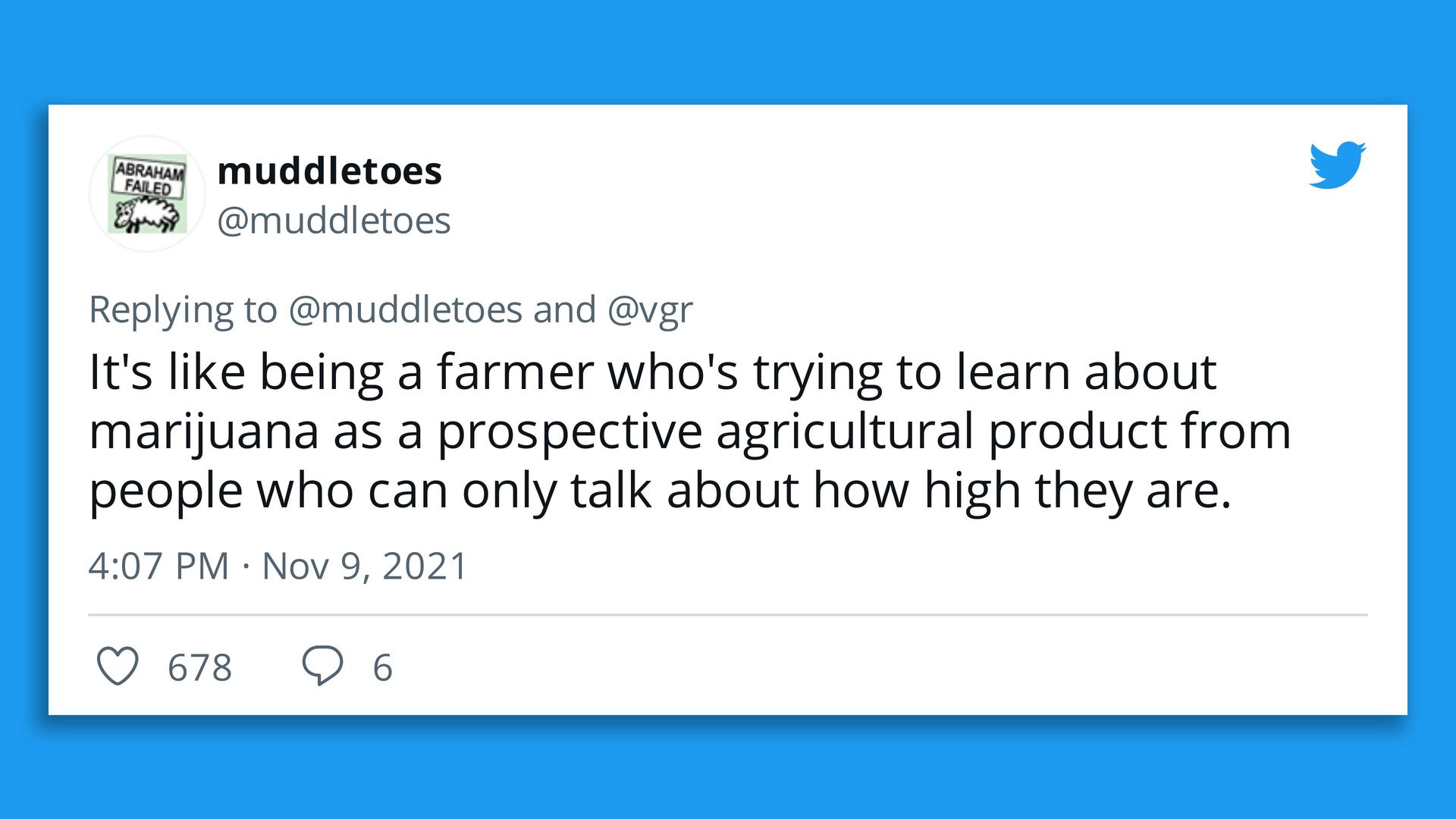| | | | | | | Presented By PWC | | | | Axios Future | | By Bryan Walsh ·Nov 10, 2021 | | Welcome to Axios Future, which went to college so long ago, emails used to be accessed with something that looked like this. If you haven't subscribed, do not delay. Today's Smart Brevity count: 1,609 words or about 6 minutes. | | | | | | 1 big thing: U.S. universities face an existential challenge |  | | | Illustration: Annelise Capossela/Axios | | | | Enrollment in U.S. colleges and universities is on track to drop for the second year in a row, exposing a political rift in the higher education system. Why it matters: America's universities are still some of the best in the world, and a college degree is still the most reliable ticket to socioeconomic mobility, which underscores the importance of who goes there and what they learn. What's happening: Undergraduate enrollment declined 3.2% this autumn, following a 3.4% drop in 2020, which would represent the biggest two-year fall in at least half a century, according to preliminary data released last month by the National Student Clearinghouse Research Center. - The drop is particularly sharp for community colleges, which saw enrollment fall 14.1% since fall 2019, and for men.
- Male enrollment fell 9.3% over that time period, 4 percentage points more than the drop for female students.
The big picture: The enrollment drop — which, combined with declining government support, could put smaller, less-funded schools on a death spiral — comes as colleges increasingly find themselves the battleground for political wars. - A Pew Research Center survey from 2019 found only half of American adults think colleges and universities are having a positive effect on the way things are going in the country, with the share saying they're having a negative effect up 12 percentage points since 2012.
- The increase in negative views is almost entirely from conservatives. In a 2018 survey, 84% of Democrats and Democratic-leaning independents said they had a great deal or a fair amount of confidence in college presidents and professors to act in the best interests of the public, compared to just 48% of Republicans and Republican-leaning independents.
- That divide comes as both student bodies and academic faculty increasingly identify as liberal and the Republican party increasingly sheds college-educated voters, leaving universities caught in the middle.
What they're saying: At their best, universities are not just engines of economic mobility and stewards of expertise, but "bulwarks of democracy," says Ronald Daniels, the president of Johns Hopkins University and the author of the new book "What Universities Owe Democracy." - "To the extent that we fail to ensure the public's trust in the facts that we produce, it's an important challenge to the nature of the democratic experiment."
Between the lines: Some of that distrust stems from the perception that the classic liberal arts ideal of free and open inquiry is clashing with new social norms on fairness and inclusion. - A 2020 Knight Foundation survey found 63% of college students feel "the climate on their campus prevents some people from saying things they believe because others might find them offensive."
- The University of Florida last month banned professors from testifying in a case to overturn the state's new voting law, before reversing course after criticism it was eroding academic freedom.
- In his book, Daniels writes "an unmistakable pulse of dogmatism has surfaced on campus," and he says that "at some level [colleges] are a mirror of a very polarized and deeply distrustful society riven by deep chasms."
The bottom line: Universities may have been designed as "a place apart," as Daniels puts it, but what takes place on their campuses helps shape the future of the country. Read the rest |     | | | | | | 2. Startup offers psychedelic-assisted mental wellness therapies |  | | | Illustration: Annelise Capossela/Axios | | | | The Miami-based telemedicine startup NUE Life Health is aiming to become an early leader in combining digital mental health therapy with psychedelics and other mind-altering compounds. Why it matters: Drugs like ketamine and psilocybin — the active ingredient in magic mushrooms — are showing real promise in addressing mental health disorders. - Access to the compounds and the specialized therapy and monitoring they require is a challenge, but using telemedicine could help.
How it works: NUE Life Health — which is currently operating in California, Texas and Florida, with plans for a nationwide expansion — is developing a digital platform that will offer at-home ketamine therapy. - Wearable devices can help provide what NUE Life Health co-founder and CEO Juan Pablo Cappello calls "digital phenotyping" on data points like sleep and activity that will produce patient information that goes beyond the self-reporting generally used to guide mental health therapy.
- "We can assess patients when they start, to get their baseline statistics," says Zayn Hassan, NUE Life Health's chief medical officer and co-founder. "And then after each experience, we can assess them again, see how well they're doing" and tweak further treatment as needed.
- NUE Life Health says it can bring down the price of ketamine treatment, which can currently cost several hundred dollars per infusion.
Driving the news: The largest-ever study on psilocybin found that it was highly efficacious in addressing treatment-resistant data, according to results released Tuesday, underscoring the potential benefits of psychedelic drugs. - Esketamine, a chemical cousin of ketamine, became in 2019 the first new anti-depressant approved by the FDA in 25 years.
- It's not clear how the drugs work, though one theory is they help encourage the development of neuroplasticity in the severely depressed or anxious brain.
Read the rest |     | | | | | | 3. IoT to generate up to $12.6 trillion in value by 2030 |  | | | Illustration: Shoshana Gordon/Axios | | | | From smart home devices to sensor-laden factories, the Internet of Things (IoT) is poised to generate trillions of dollars in value by the end of the decade, according to a new report from the McKinsey Global Institute (MGI). The big picture: The IoT is where the digital and physical worlds converge. - But just how large the IoT eventually becomes will come down less to technological development than to ensuring different connected devices can operate together while countering cybersecurity concerns.
By the numbers: MGI estimates by 2030 the IoT could enable between $5.5 trillion and $12.6 trillion in value globally. - About 65% of that value is projected to be created in business-to-business applications, like smart factories or offices, rather than consumer applications like internet-connected robot vacuums.
- The IoT economy is predicted to lean toward developing countries — which benefit from being able to build smart facilities from the ground up rather than retrofitting — and China in particular, which MGI expects will generate more than a quarter of all IoT value by 2030.
The catch: It's far from certain all of this economic value will be realized. - An earlier MGI report from 2015 on the IoT projected the industry would generate $3.9 trillion to $11.1 trillion by 2025, but the new report lowers that to $2.8 trillion to $6.3 trillion.
- "We found that for production facilities in particular, it's really been quite difficult to adopt these technologies at scale," says Michael Chui, a partner at MGI. "And most of that challenge is not in the technology, but in changing the organization as well to make the most of it."
Read the rest |     | | | | | | A message from PWC | | The Great Resignation is here | | |  | | | | PwC's Pulse Survey: Next in Work reveals that employees want more flexibility, benefits and pay, but employers are only delivering on flexibility. How can you balance strategic and operational goals with shifting employee expectations? Here's our guide to surviving the work revolution. | | | | | | 4. The hybrid future of conflict |  | | | Polish security personnel guard a barbed wire fence at the Poland-Belarus border on Nov. 10. Photo: Leonid Shcheglov/BELTA/AFP/Belarus OUT | | | | Two events over the past week — an attempted drone assassination and a partially engineered migrant crisis — show the changing nature of conflicts. Why it matters: Outright wars between states remain extremely rare, but new technologies and strategies are enabling countries and groups to wage conflict by other, hybrid means. Driving the news: On Sunday, Iraqi Prime Minister Mustafa al-Kadhimi survived an assassination attempt after armed drones targeted his residence in Baghdad. - Reuters, citing Iraqi security officials, later reported the attack was carried out by at least one Iran-backed militia, though likely without the sanction of the Iranian government.
- In Poland, hundreds of migrants tried to storm the border from Belarus in what a Polish security official said was a campaign engineered by the Belarusian government as a "hybrid attack" against Poland.
The big picture: Both events demonstrate the new tools available to wage asymmetric, often deniable conflicts without the use of a single soldier. - The U.S. began the global war on terror with a near monopoly over armed drones, but today more than 100 militaries have some level of armed or unarmed drone capability as the technology has become cheaper and more widespread.
- Drones — which put no soldiers at risk and often bear no identification — are particularly worrying as weapons of targeted assassination, especially as they become more autonomous.
- German spokesperson Steffen Seibert has said Belarus — which has come under sanctions from Poland and other EU members — "instrumentalizes refugees and migrants" in an effort to destabilize the EU.
Of note: Belarus insists the migrants are merely exercising their rights as refugees, though it's worth noting that hybrid war — a blend of conventional and political warfare — is specifically meant to operate in a gray zone of plausible deniability. The bottom line: In the future, the fog of war will only get denser. Share this story |     | | | | | | 5. Worthy of your time | | Crypto cities (Vitalik Buterin) - The co-founder of the cryptocurrency Ethereum has some ideas about bringing the blockchain to city government.
Our worst idea about "safety" (Tim Requarth — Slate) - An excellent piece on the problematic concept of "risk compensation," and the way it has warped our response to COVID-19 and more.
AI-generated clinical candidates, so far (Derek Lowe — Science) - An overview of AI's ability to identify new drug candidates is pessimistic in the short term and optimistic in the long.
The Metaverse and (near-)infinite economic growth (Noah Smith — Noahopinion) - Weird as it is, the metaverse points toward a future when economic growth can continue — in the virtual world — without taxing resource use.
|     | | | | | | 6. Tweet of the week: Crypto explainer edition |  | | | Credit: @muddletoes | | | | Twitter user @muddletoes says succinctly what I and others have been thinking. The bottom line: Like, I want to understand how blockchain technology might actually help city government, but what I mostly get is endless chatter about how primo the high is on the crypto equivalent of Acapulco Gold. |     | | | | | | A message from PWC | | How to boost trust in your company | | |  | | | | PwC's Trust in US Business Survey reveals that the definition of trust is multidimensional and not everyone sees trust the same way. How is trust defined? How can it be created, fostered and built? Take a deeper dive into what creates trust, how to build it and who is responsible for it. | | |  | | It'll help you deliver employee communications more effectively. | | | | | | Axios thanks our partners for supporting our newsletters. If you're interested in advertising, learn more here.
Sponsorship has no influence on editorial content. Axios, 3100 Clarendon Blvd, Suite 1300, Arlington VA 22201 | | | You received this email because you signed up for newsletters from Axios.
Change your preferences or unsubscribe here. | | | Was this email forwarded to you?
Sign up now to get Axios in your inbox. | | | | Follow Axios on social media:    | | | | | |









No comments:
Post a Comment